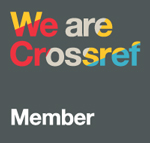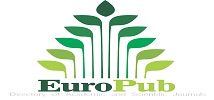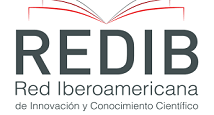Pedagogical strategies to develop oral expression skills
DOI:
https://doi.org/10.51440/unsch.revistaeducacion.2020.18.179Keywords:
oral expression abilityAbstract
The objective of this study was to determine the degree of influence of the application of pedagogical strategies on the level of oral expression in the students of the “Guamán Poma de Ayala” Application Campuses. On the basis of the systematization of the conceptual theoretical heritage, analysis, reflection and permanent contrast with the diagnosis data, I support the proposal of pedagogical strategies for the development of the capacity of oral expression. The type of research is experimental. The design is quasi-experimental (the information was collected through an input and output evaluation); the level is explanatory (the reason for the low level of oral expression and under what conditions it occurs was understood). Finally, important conclusions were drawn. The results are as follows: according to the entrance evaluation, regarding oral expression, the percentage of students who were at the beginning is 31% in the experimental group and 45% in the control group; those who were located in process, in the experimental group it was 44% and in the control group 48%. The students who showed outstanding achievement in the experimental group was 15% and in the control group 7%. According to the exit evaluation, 80% (24) of the experimental group showed outstanding achievement, and in the control group 20% (6). In process, 13% (3) of students from the experimental group were located; while in the control group the percentage is 57% (17). At the beginning, 7% (2) of students from the experimental group were located, unlike the control group, which amounts to 23% (6).Downloads
References
Alcoba, S (2000). La expresión oral. Barcelona: Ariel.
Álvarez, Y. y Parra A. (2015) Fortalecimiento de la expresión oral en un contexto de interacción comunicativa. [Tesis para obtener el grado de magíster, Universidad Pedagógica y tecnológica de Colombia] https://repositorio.uptc.edu.co/bitstream/001/1513/1/TGT149.pdf
Avendaño, F (2006). El desarrollo de la lengua oral en el aula: estrategias para enseñar a escuchar y hablar. Rosario: Homos Sapiens.
Berlo, D. (1990). El proceso de la comunicación. Introducción a la teoría y práctica. Buenos Aires. Edit. El Ateneo.
Brizuela, L. (1993) Cómo se escribe un cuento. Buenos Aires, Argentina. Edit. El Ateneo.
Calsamiglia, H. (1989). El estudio del discurso oral. Españana Edit. Universidad Autónoma de Barcelona
Casany, D. (2010) La cocina de la escritura. Barcelona, Edit. ANAGRAMA S.A.
Castillo, J (2008) El desarrollo de la expresión oral a través del taller como estrategia didáctica globalizadora. Sapiens, 9, 1. Recuperado de http://www2.scielo.org.ve/scielo.php?script=sci_arttext&pid=S13175815200 8000100010&lng=es&nrm=i
Cervantes , R. (2007) Teoría y didáctica de lengua y literatura Lima, Edit. San Marcos.
Cots, J. M. (1995) El desarrollo de la competencia comunicativa oral, Edit. Universidad de La Coruña
De Luca, M. (1983) Didáctica de la lengua oral. Metodología de enseñanza y evaluación. Buenos Aires, Kapelust
Galera F. (1991). Lenguaje expresivo y comunicación oral. Edit. Universidad de La Coruña
Jara, C. (2003) Arte de cazar dragones. Lima, Edit. San Marcos.
Ruiz, U. (2013) Didáctica de la lengua castellana y la literaturaEspaña, Edit GRAO
Touh J. (1987). El lenguaje oral en la escuela. Madrid,Visor
Zarza, L (2012).Lenguaje oral. En: La dramatización en preescolar. Recuperado de http://zarzalaurisdramatizacion.blogspot.pe/p/la-dramatizacionseria-unrecurso.
Html
Downloads
Published
How to Cite
Issue
Section
License
Copyright (c) 2020 Édgar Saras Zapata

This work is licensed under a Creative Commons Attribution-NonCommercial 4.0 International License.





















